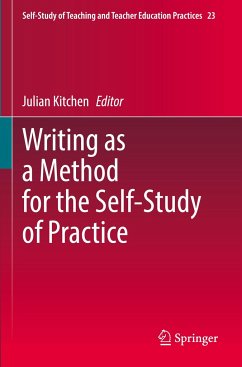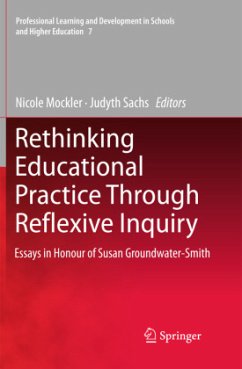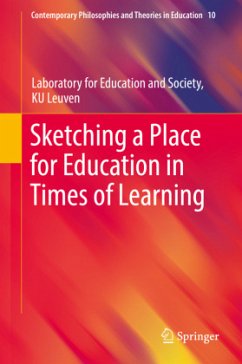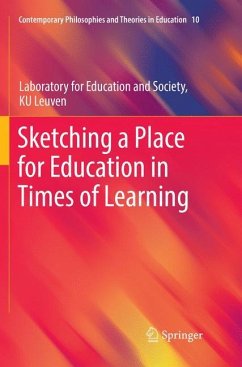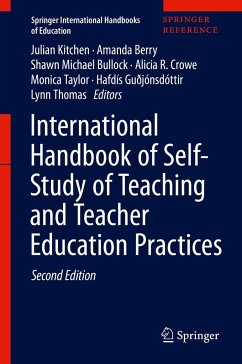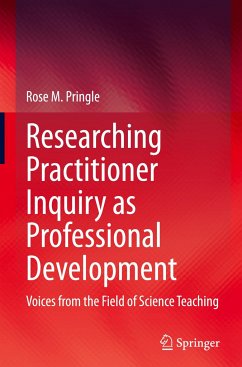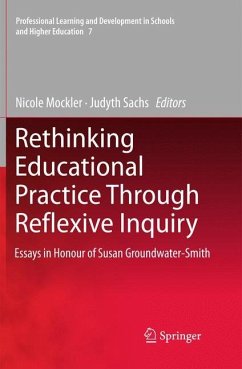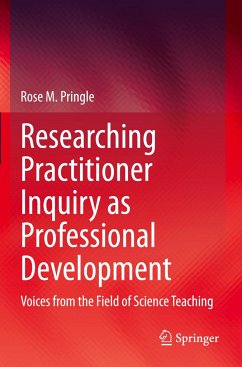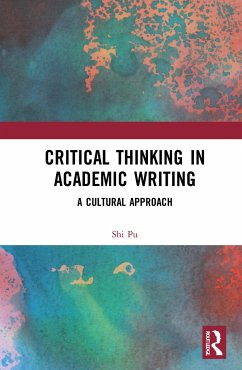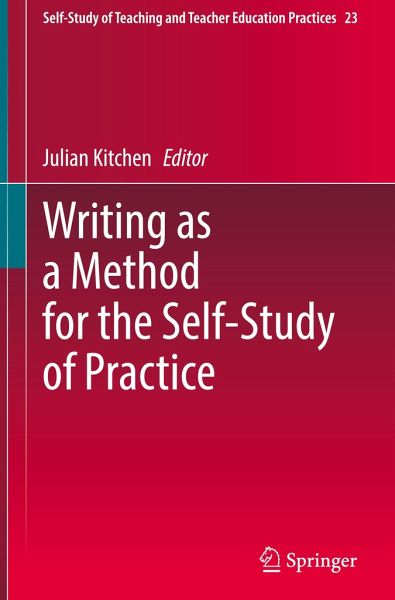
Writing as a Method for the Self-Study of Practice

PAYBACK Punkte
68 °P sammeln!
This book focuses on the writing process in the self-study of teaching and teacher education practices. It addresses writing as an area in which teacher educators can develop their skills and represents how to write in ways that are compatible with self-study's orientations towards the inquiry, both personal and on practice.The book examines effective self-study writing with chapters written by experienced self-study practitioners. In addition to considering elements of writing as a method for the self-study of practice, it delves into the cognitive processes of real writers making explicit th...
This book focuses on the writing process in the self-study of teaching and teacher education practices. It addresses writing as an area in which teacher educators can develop their skills and represents how to write in ways that are compatible with self-study's orientations towards the inquiry, both personal and on practice.
The book examines effective self-study writing with chapters written by experienced self-study practitioners. In addition to considering elements of writing as a method for the self-study of practice, it delves into the cognitive processes of real writers making explicit their writing practices. Practical suggestions are connected to the lived experiences of self-study practitioners making sense of their field through the process of writing. This book will be of interest to doctoral and novice self-study writers, and experienced authors seeking to develop their practice. It demonstrates that writing as a method of inquiry in self-study and beyond can be learned, modeled and taught.
The book examines effective self-study writing with chapters written by experienced self-study practitioners. In addition to considering elements of writing as a method for the self-study of practice, it delves into the cognitive processes of real writers making explicit their writing practices. Practical suggestions are connected to the lived experiences of self-study practitioners making sense of their field through the process of writing. This book will be of interest to doctoral and novice self-study writers, and experienced authors seeking to develop their practice. It demonstrates that writing as a method of inquiry in self-study and beyond can be learned, modeled and taught.



